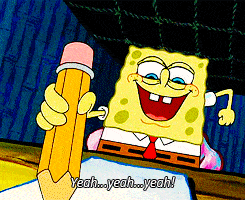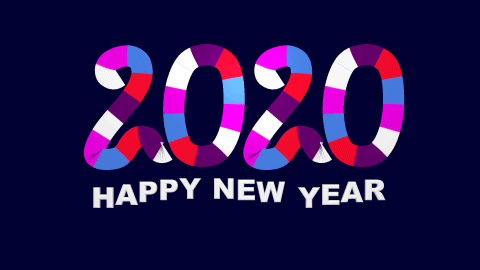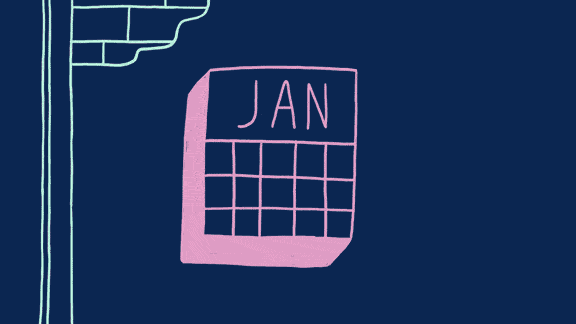- Mar 29, 2020
- 5 min read
The Questions
What is the best-case scenario?
What is the most likely scenario?
What can you do about the worst-case scenario? What do you not have control over and will choose to let go?
The reason behind asking these questions

What this graph means
If we pretend the x-axis shows how "good" something is, with negative events occurring on the left side and positive events happening on the right side
And on the y-axis we count the # of times something happens out of, say, 100 simulations of that example
What this graph shows is that: the most likely situation is a neutral situation, in the middle
The best-case scenario occurs very little of the time, but so does the worst-case scenario
Best case scenario
when in panic mode, my brain fires up and looks at all the worst-case scenarios to prep us to fight it
but in reality, the best-case scenario is JUST as likely to happen usually, and we should give it equal weight in our thinking
that's why, in addition to your body automatically prepping us by thinking of the worst, we should ask ourselves, are we prepared for the best-case scenario? did we consider what that would look like?
Most likely scenario
when in panic mode, our brains also gloss over all the middle parts, all the neutral non-black & white possibilities
asking myself what the MOST likely situation to happen is important because we want to be prepared for this scenario the most (rather than the worst-case scenario)
Worst-case scenario
we also don't want to entirely ignore the worst-case scenario because your body is alerting you to this for a reason
I like to split the journalling for this into two categories
[1] what CAN I do about this situation?
This is to acknowledge that oftentimes our brains worry about things and there are tangible next steps you could take. Make a plan and schedule those steps. The brain worries because it's an internal notification system reminding you to do things all the time when actually, we can just isolate the reminder to just the 5 minute period before you have to do the thing.
[2] what are things that I have no control over that I should make time to honour and then let go?
acknowledge that anxiety serves a purpose to warn your body of something and to spur it into action to DO something, but there isn't always something it can do. When this smoke detector accurately detects that something is on FIRE, you have tangible next steps to evacuate. When the smoke detector goes off just because you ever so slightly burned your omelette, it's an annoying alert system that sets of all these unpleasant reactions (loud sirens).
for me, I take the time to be like, thanks smoke detector (thanks anxiety), you tried, I can't do anything about this slightly burned omelette. You (anxiety/ smoke detector) served a purpose and instead of focussing on letting it ring eternally, I'm gonna press the button that shuts it up
The hard thing about panic is that it doesn't have a single button like the smoke detector, but there ARE ways to curb anxious thinking and anxious bodily reactions (feeling clammy, out of breath, heart palpilations)
Calming your anxious thinking: mindful sushi train, mindful leaves on stream
Calming your anxious body: deep breathing, progressive muscle relaxation, visualization
An example
Scenario: I'm pitching a new research idea to my supervisor and I'm nervous because I REALLY LIKE THE IDEA and it's my first time pitching anything to her.
What is the best-case scenario?
She says yes! Let's do this! So excited!!!
Part of writing this journal entry will feel empowering, trust me. Writing the answer to this question will feel energizing. When I do this it feels like a burden is lifted off my shoulders because previously I only automatically considered all the potential embarrassing endings and that's such a burden to hold tbh.
What is the most likely scenario?
She says maybe, sounds interesting, but has some qualms. Her advice is to please gather more information and answer these n questions about feasibility and rationale and let's discuss again!
Writing this ALSO made me feel a burden lightening. Instead of just assuming no, I'm expecting that most likely, my "baby's first research idea" will have some flaws and her role is to give me constructive feedback. It doesn't have to be perfect the first time, and having that scaffolding for making this project feasible and convincing for funding is a good exercise to hone key research skills.
The neutral scenario can so easily be framed as a negative scenario (oh, she said no, "I'm a failure") as a positive scenario (ah, I see movement and forward motion in this project and see tangible steps forward). How you frame the neutral/ most likely scenario is so important.
What is the worst-case scenario?
She says no, please finish all of your existing projects first.
Actually, as I write this out I realize this isn't the worst-case scenario but when it's swimming in my head it fEELS like a downright "no" and a rejection, which hurts. In reality, it's a "not yet", with tangible steps for what you have to finish next (stuff on your plate) and a reminder to revisit this idea as it grows (set a calendar reminder).
She says no, this is a terrible idea let us never revisit this again.
Honestly, my first worst-case scenario thoughts about this make me feel terrible. It's the bulk of the "burden on my shoulders" feel. Imagine how embarrassing this could feel, how this feels like rejection!
I think in the past I would have just jumped to part 2 of the question, "what can we acknowledge and let go of"? It hurts when an idea gets scrapped because like I said in the beginning, it's something I valued, and losing the opportunity to do something you valued does hurt. It might take some time to let go.
Because of what journaled in question 2 about the most likely situation, I actually discovered that more than I value 100% acceptance of an idea, I value feedback from a supervisor and that's really what I'm investing in when I do this degree. If she flat out just shuts it down (which is honestly out of character), I would ask specific questions about why because part of what I value is learning how to chisel down a dumb idea into a shining, feasible one.
If she still declines I would respect that boundary, of course, do some reading and reflection on my own (ideally) and go back to part 2 of this question of letting it go. In this scenario I have already tried the best I could to a) pitch the idea and b) learn from pitching the idea and there were no further steps I could have taken. Honour your effort and allow yourself to let go of things that don't budge.
Why stop here?







